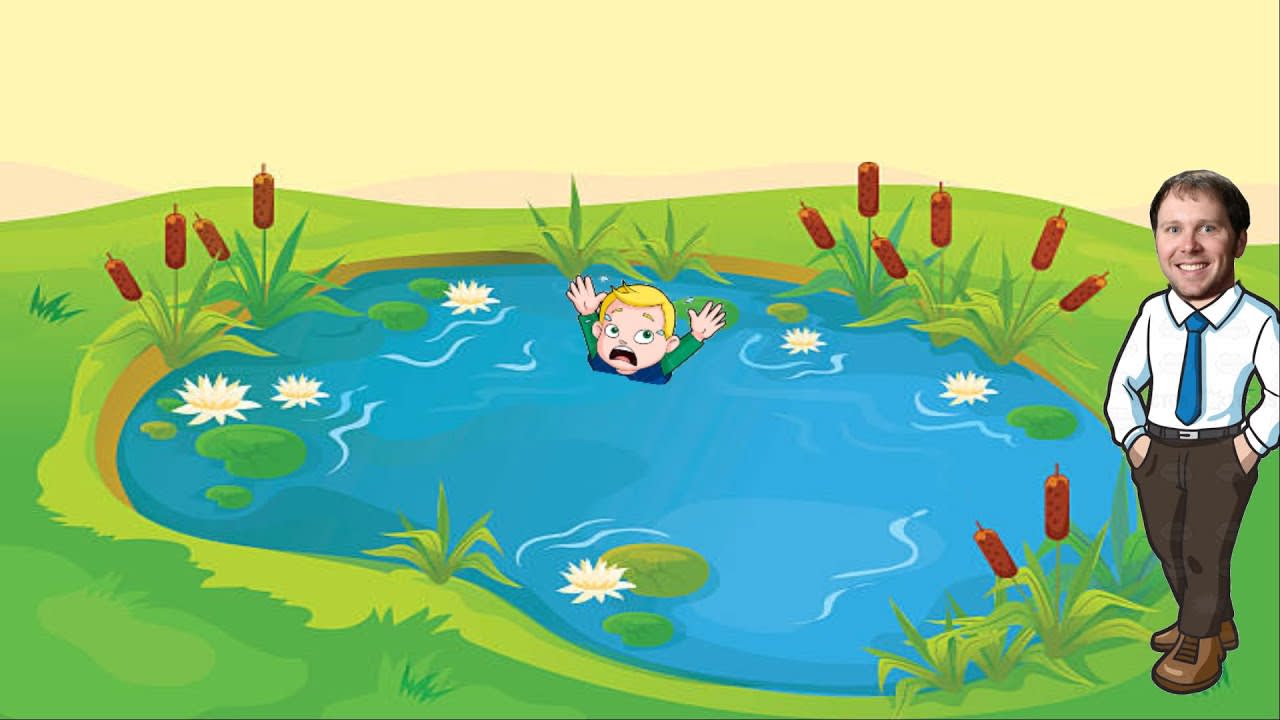I believe Buddha and Buddha's teachings are more aligned with Effective Altruism than current Buddhist culture and in this short piece, I am going to explain why that matters.
Buddhism is a philosophy full of wisdom with great truths whose culture lacks a real impact focus. It's a prime example of a meta-trap.
In Buddhist society, many Buddhists have extreme willpower and dedication but lack a calling/path to real world action. I believe Buddhism represents a giant source of potential output for EA causes and through my studies of Buddhism, I believe that Buddha meant for his teachings spawn effective action.
Other Buddhists have come to the same conclusion (Links to EA Buddhism Facebook group)
We can learn from Buddhist Culture:
The funny thing about entrepreneurs/EA's who are maximizing their productivity to positively change the future is that they are pieces of
From quitting alcohol, to no-fap, to stoicism, and dopamine fasts, Buddhist teachings were way ahead of the game.
For example here are 4 of the 10 precepts taught in Buddhist culture:
"Not to engage in licentious acts or encourage others to do so. A monk is expected to abstain from sexual conduct entirely.
Not to use false words and speech, or encourage others to do so.
Not to trade or sell alcoholic beverages or encourage others to do so.
Not to harbor anger or encourage others to be angry."
Entreprenuers even use the meme "going monk mode" to describe this phase of extreme dedication to their craft. The craft portion, is whats missing in Buddhist culture as I believe the "renounce all worldly desires" is misportrayed as impactful goals being "wrong"
Evidence Buddha Was An EA:
One of my favorite and most compelling pieces of evidence for why Buddha was actually an effective altruism maxi is based on Buddha’s teachings for the path to nirvana which includes four main vows.
The Bodhisattva Vows exist in many different forms; they are chanted as follows:
1. Creations are numberless, I vow to free them.
2. Delusions are inexhaustible, I vow to transform them.
3. Reality is boundless, I vow to perceive it.
4. The awakened way is unsurpassable, I vow to embody it.
It’s also said in this way.
1. Living beings are limitless, I vow to liberate them all.
2. Blind passions are limitless, I vow to sever them all.
3. Dharma gates are inexhaustible, I vow to know them all.
4. Unsurpassed is awakening, I vow to realize it.
Or, in its simplest form, the four main vows are:
1. To save all people
2. To renounce all worldly desires
3. To learn all teachings
4. To attain perfect enlightenment
If you go searching, there are many other ways these four vows are written, but they are all telling the same thing, in this order. Which makes you wonder why has the Buddhist movement consisting of 300 million members (over 1000x reported EA numbers) has not identified the solutions to the world's greatest problems that may inhibit others from attaining enlightenment.
As anyone may observe from the outside, the most influential people in the world today are not Buddhists, nor is your average idea of a Buddhist someone focusing on creating effective impact. I believe a hyper effective cause area is pushing towards Effective Buddhism practice.
By the very meaning of the vows, the second vow (renounce all worldly desires) cannot be done without first completing the first vow (saving all people), as vow one is in fact, an earthly desire. Buddha was a man who very much so took action that was in accordance with his teachings spreading far and wide. Its not too surprising that with so much time, a higher focus on meditation and disregard of material belongings is more prominent, as it is a direct and easy to measure path while save all people has many paths which are murky, meaning it becomes a road less traveled.
I hope to establish idea is to relinquish attachment to earthly desires in order to desire only freeing all creation. Not to meditate all day to do nothing, but to focus that willpower to specialize and help free all of creation.
Buddhism has become an endless game of ineffective spiritual ego stroking. Looking into the self to try to find more, when the calling is that the self is everywhere and must be brought up with them.
I am not saying that the Men and Women who have become great at meditating for hours and wholely living a minimalist life have not made progress down their path of enlightenment. Instead, I believe these people who realize their potential to follow the first vow, who can disregard ALL OTHER DESIRES BESIDES SAVING ALL PEOPLE have the potential to be some of the most effective people out there.
Buddhism and Effective Altruism have more similarities than we currently give credit to and give the existing Buddhists in EA material to start influencing the 300 million-strong Buddhist culture to be more effective.
My message to Buddhists is to focus on impact:
People are dying because of your inaction. If you were near a pond with a drowning child would you really not save them because that would be "giving in to attachment"? Absolutely not.
This staging of thought is in reference to Peter Singer's thought experiment which states that we are all within reach of just within reach of a drowning child, just with layers of abstraction.
While it's not as easy to identify that people will suffer from your inaction you ARE NOT A MONKEY and as a conscious human intellectual being, you can understand that this is actually the case. You were blessed with an ability to give and to understand, I ask that you do not squander it, and I hope you help empower your potential.
Where Does That Leave Us?
Tapping into the massive Buddhist following worldwide and aligning these groups towards effectiveness seems like a worthwhile cause. I personally found Buddhism as a guide in my own EA journey and care deeply about bringing all the dedicated ready souls, into a path of higher effectiveness.
A major value of EA is offering many pathways of effective positive change that are researched and compelling. For Buddhists that struggle with detachment because of lack of directed calling for "going monk mode" I believe this can help align the calling to focus and specialize.
In order to spread this Buddhist lifestyle effectively, we should maximize our reach potential to Buddhists and non-Buddhists worldwide, showing the Effective Buddhist lifestyle in accordance with these principles.
I strongly believe in this idea of focusing on local maxima in order to maximize globally. The internet allowed us to enter digital bubbles of community with new subsets of culture that allow collaborative efforts as we see with EA itself. Many futurists, such as Balaji Srivasinan who released a book on "Network States", see the next step in this evolution as these highly aligned digital groups coming together in the physical world to live around this shared culture which was similarly addressed by Tyler in his writing on Fractal Altruism.
"How then would this be different from a normal tight-knit neighborhood? The only added ingredient might be demographic: a substantial subset of people who are devoted to world-scale service (ideally the effective kind). Provided that this subset is supported, not everyone needs to identify with a fancy ideology like “fractal altruism.” Fractal altruism would simply describe the community’s emergent activity, one which springs from its members’ natural inclination to tend to one another’s ends, which happen to include – for some – intense moral ambition."
One group pioneering this field, that I joined early on, is called "Praxis Society". Talking with founders Dryden Brown and Charlie Callihan, I found that both strongly believe in many societies coming together to live in physical harmony. They see many forward-thinking city-states emerging in the near future. At first, they even planned to focus on helping multiple other settlers start, before they decided to put their focus on the fractal model of starting with creating a single successful one. Even SBF himself joined their $15m Series A!
"Raised $15 million in a Series A funding round that included investments from Paradigm Capital, FTX Trading CEO Sam Bankman-Fried's Alameda Research and Three Arrows Capital" -https://www.coindesk.com/business/2022/03/03/paradigm-among-investors-as-praxis-raises-15m-in-series-a-funding-round/
While I believe strongly in the end state (or city;) idea, the roadmap of success for actualizing a city is still up in the air. There are 26 startup societies listed on the network state website each approaching their growth in a different way.
While believing in Praxis's vision for the future. I believe that it is far easier to spawn a town/city which would compel thousands of people to dedicate their lives to a new location to form from an existing idealogical framework rather than trying to innovate that as well.
In fact, Buddhism already has massive monasteries.
"Khenpo envisioned Larung as a university town where monks, nuns, and laypeople from all over Tibet could come and study. As the Chinese government’s attitude toward religion became more relaxed, Larung spread like an amoeba over these hills to accommodate more than 10,000 residents."
-https://thediplomat.com/2020/07/larung-gar-the-worlds-largest-monastery-and-highest-slum/
"In modern times, living a settled life in a monastery setting has become the most common lifestyle for Buddhist monks and nuns across the globe."
-https://en.wikipedia.org/wiki/Monastery
Existing Buddhist communities prove the willingness and strength of Buddhist numbers. My dream is to witness the birth of an Effective Buddhist Monastery that could host a non-profit incubator, effective university, and more.
I have spoke with others who have similar ideas, and we are aligning on a deeper vision that I would like to invite anyone reading this who wants to take any part to reach out to me.

More Sources:



I have been attending a Secular Buddhist group for a couple of years and I have also seen this similarity.
My main idea about how to link EA and Buddhism is as follows:
I think outreach to Buddhists is an interesting idea! I think many Buddhists would probably agree that the point of practice is to become a better person and thus have more impact on the world. And there are probably some who don't necessarily think about it the same way.
Buddhists and EAs could probably learn some things from each other yes. This is generally a good attitude to have towards others - curiosity and openness to experimentation.
I do think it's probably important for some people to dedicate themselves fulltime to practice and teaching as a profession, to keep the teachings and practices alive in a high-fidelity way.
Would love to speak more about it on EARadio sometime :)
Messaged you
Starting an EA Buddhist monastery is something I would donate to, and move to. Granted I can bring a couple of videographers and make it truly fractal
There is an essay on Buddhism and Effective Altruism by Calvin Baker.